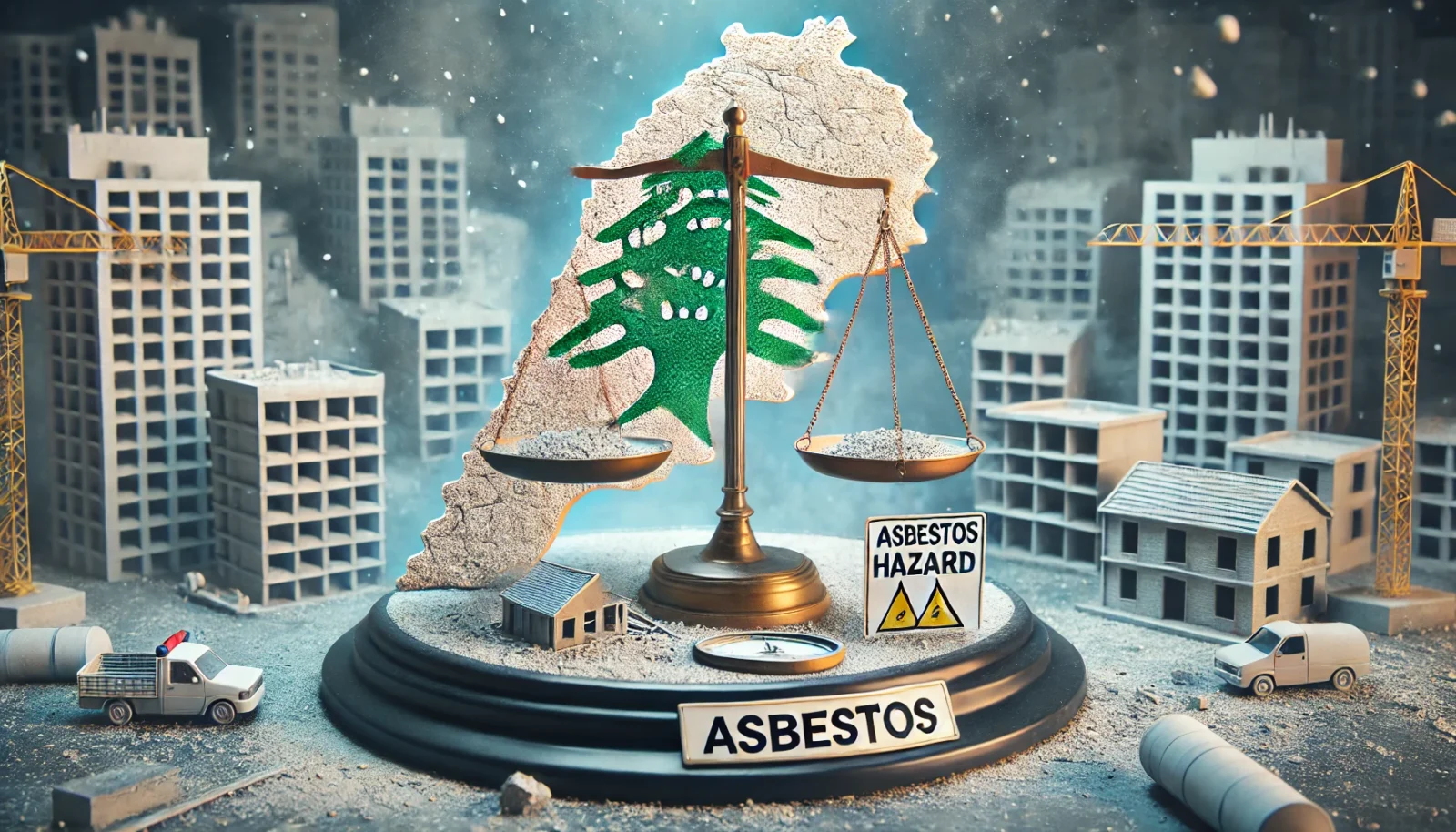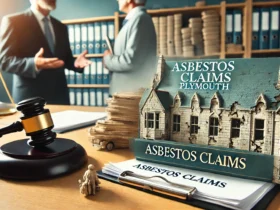Introduction To Lebanon Asbestos Legal Question
Asbestos is a harmful substance that was once widely used in construction materials, especially for insulation and fireproofing. Over time, it became clear that asbestos exposure leads to serious health issues, including lung cancer, asbestosis, and mesothelioma. Many countries, including Lebanon, face legal questions regarding the use and regulation of asbestos. In Lebanon, there has been growing concern over the handling and disposal of asbestos, particularly after it was linked to serious public health risks. This has raised important legal issues regarding its continued use, removal, and the rights of individuals affected by asbestos exposure. Lebanon’s legal framework surrounding asbestos is still evolving, and citizens, as well as businesses, are seeking answers to how asbestos will be regulated and managed in the future.
The Legal Status of Asbestos in Lebanon
The current legal status of Lebanon asbestos legal question is unclear, and this creates confusion for both the public and companies dealing with construction and demolition. Unlike many countries that have outright banned the use of asbestos, Lebanon has not fully implemented strict regulations or bans. Although Lebanon has taken some steps to address asbestos contamination and its health effects, there are gaps in enforcement and monitoring. Without a clear legal stance on the use and disposal of asbestos, it remains a legal gray area. This has led to increased legal concerns and questions about liability, especially in industries where asbestos was heavily used in the past. The lack of a comprehensive ban or proper regulation leaves room for legal disputes and challenges.
Health Risks Associated with Asbestos Exposure in Lebanon
The health risks of asbestos exposure are well-documented worldwide, and Lebanon is no exception. Individuals exposed to asbestos fibers, whether through construction work or contaminated environments, are at high risk for developing respiratory diseases. Lung cancer, mesothelioma, and asbestosis are just some of the serious health conditions that have been linked to asbestos exposure. In Lebanon, the lack of strong regulation and proper disposal methods increases the danger to the general public. Buildings constructed before the dangers of asbestos were known may still contain the material, and demolition or renovation of these structures can release harmful fibers into the air. This raises urgent legal and health questions for Lebanon, particularly for workers and residents near sites with asbestos contamination.
Current Laws and Regulations on Asbestos Use in Lebanon
Currently, Lebanon does not have comprehensive laws specifically regulating the use of asbestos. While there are general environmental and public health regulations, none directly address the full scope of asbestos use, handling, and disposal. The absence of clear legal guidelines leaves companies and individuals in Lebanon unsure about their responsibilities when dealing with asbestos-containing materials. Additionally, this legal uncertainty means that the risks to public health may not be adequately managed. In comparison to other countries where strict asbestos laws are enforced, Lebanon lags behind in establishing a legal framework that ensures the safe removal and disposal of asbestos. This makes the legal landscape surrounding asbestos complex and in need of reform.
Legal Options for Victims of Asbestos Exposure in Lebanon
For victims of asbestos exposure in Lebanon, pursuing legal action can be challenging due to the lack of clear legislation. Many individuals affected by asbestos-related diseases may not be aware of their rights or the legal recourse available to them. In some cases, they may seek compensation from employers or companies responsible for exposing them to asbestos. However, without specific laws on asbestos, these legal battles can become difficult. Victims must often rely on broader environmental or public health laws, which may not provide sufficient protection or clarity. It is essential for Lebanon to develop a more defined legal framework that allows victims of asbestos exposure to seek justice and compensation.
Asbestos Litigation and Compensation Claims in Lebanon
The process of asbestos litigation and filing compensation claims in Lebanon is still developing. Due to the lack of specific laws targeting asbestos, victims and their families often face legal hurdles when trying to file claims. Legal cases typically revolve around negligence or failure to provide a safe environment for workers or residents, but proving direct links between asbestos exposure and health conditions can be difficult. In many countries, asbestos litigation has resulted in large settlements for victims, but in Lebanon, the legal system is not yet fully equipped to handle such cases effectively. The growing awareness of asbestos-related illnesses, however, is pushing for more structured litigation processes and better compensation mechanisms for those affected.
Challenges in Enforcing Asbestos Laws in Lebanon
One of the major challenges in Lebanon is the enforcement of existing regulations related to asbestos. Even though there are general environmental and public health laws, enforcement remains weak, particularly in the areas of asbestos removal, disposal, and handling. The lack of specific asbestos laws makes it difficult for authorities to monitor or control the presence of asbestos in older buildings and industrial sites. Additionally, many companies and individuals may not be fully aware of the risks or the need to properly manage asbestos. This creates a significant public health issue and legal question for Lebanon: How can the country ensure that asbestos regulations, once in place, are effectively enforced?
How Asbestos Regulations in Lebanon Compare to Other Countries
In comparison to other countries, Lebanon lags behind in terms of asbestos regulation. Many countries, particularly in Europe and North America, have implemented strict bans on asbestos and have comprehensive systems for handling asbestos in old buildings. In these countries, strong legal frameworks ensure that victims of asbestos exposure can seek compensation and that companies are held accountable for exposing workers to harmful materials. In Lebanon, however, the absence of such stringent regulations leaves many legal questions unanswered. The lack of a clear asbestos ban and the weak enforcement of environmental laws make Lebanon an outlier in global efforts to combat asbestos-related health risks.
Governmental Efforts to Address Asbestos-Related Health Risks
The Lebanese government has made some efforts to address the health risks associated with asbestos, but much work remains to be done. Public health campaigns and environmental awareness initiatives have highlighted the dangers of asbestos exposure. However, these efforts are often limited by a lack of funding and clear legal mandates. The government has yet to introduce comprehensive laws that specifically target the safe removal and disposal of asbestos. Until more robust legal and regulatory frameworks are in place, the government’s efforts will likely fall short of fully protecting the public from the dangers of asbestos exposure. This raises important legal questions about the state’s responsibility in managing asbestos risks.
Future Outlook on Asbestos Legislation in Lebanon
The future of asbestos legislation in Lebanon looks uncertain but promising. Growing public awareness and increased pressure from environmental groups may push the government to adopt more stringent laws regarding asbestos. International organizations and legal experts have begun to call for clearer regulations and better enforcement of existing public health laws to address the asbestos issue in Lebanon. As more cases of asbestos-related diseases come to light, the government may be compelled to take more decisive legal action. A comprehensive legal framework that bans asbestos use and mandates proper disposal methods could significantly reduce the health risks and provide legal clarity for businesses and victims alike.
Conclusion
The issue of asbestos in Lebanon raises significant legal, health, and environmental questions. While asbestos poses well-known health risks, Lebanon lacks a comprehensive legal framework to address its regulation, use, and disposal. The absence of clear laws leaves many businesses and individuals in a legal gray area, making it difficult for victims of asbestos exposure to seek compensation. As public awareness grows and the pressure on the government increases, it is crucial for Lebanon to develop and enforce more stringent asbestos regulations to protect the public from further harm. A clear legal stance on asbestos will also offer victims the legal recourse they need while ensuring that the country moves towards safer environmental and public health standards.
FAQs
Is asbestos banned in Lebanon?
No, asbestos is not fully banned in Lebanon. While there are general environmental and public health laws, there is no comprehensive ban or strict regulation governing the use, disposal, and management of asbestos.
What health risks are associated with asbestos exposure in Lebanon?
Exposure to asbestos can lead to serious respiratory diseases such as lung cancer, mesothelioma, and asbestosis. These conditions can develop after prolonged exposure to asbestos fibers, often found in older buildings or industrial sites.
What legal options do victims of asbestos exposure have in Lebanon?
Victims of asbestos exposure in Lebanon face legal challenges due to the lack of clear legislation. However, they may be able to seek compensation through broader public health or environmental laws, although these cases can be complex and difficult to prove.
How does Lebanon compare to other countries in terms of asbestos regulation?
Compared to countries in Europe and North America, Lebanon lags behind in asbestos regulation. Many countries have banned asbestos outright and have strict legal frameworks for its management, whereas Lebanon has yet to implement comprehensive laws.
What is the government doing to address asbestos risks in Lebanon?
The Lebanese government has made some efforts to raise public awareness of the dangers of asbestos, but there is still a need for stronger legal and regulatory measures. Comprehensive laws and better enforcement are necessary to effectively manage asbestos-related health risks.
What is the future outlook for asbestos legislation in Lebanon?
There is hope that Lebanon will implement stricter asbestos laws as public awareness grows and pressure mounts. A clearer legal framework banning asbestos and ensuring proper disposal methods is essential to protecting public health in the future.
Did you find this article helpful? Check out the rest of our blog on Law Firm Genius.
















Got a Questions?
Find us on Socials or Contact us and we’ll get back to you as soon as possible.